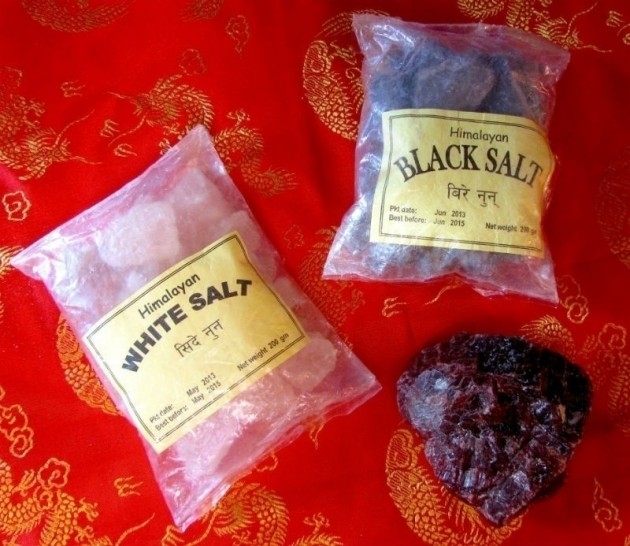EcoRaw Living is not only a natural way to satisfy our taste buds and nutrient needs without compromising the principles of ecology, sustainability, and nutritional health. It is a complete approach to life, involving every aspect of cellular nutrition and health that is known to science: Unlike other lifestyle approaches, including many raw food paths that often sadly focus on "EGO"-raw rather than Eco-raw choices (by emphasizing easily-marketable superficial traits), Eco-Raw Living (launched by Ecopolitan in January 2006) teaches the following:
- Focus almost entirely on unrefined, uncooked plant foods, including all the botanical parts of the plant (roots, bulbs, stems, leaves, flowers, and fruits (which contain the seeds), and heavily favor greens and fruits,emphasizing variety of types and colors.
In addition to avoiding the obviously detrimental artificial, processed, cooked, refined, packaged supermarket fare, avoidany hyped non-food medicinal items that can act asaddictive, nutrient-depleting stimulants and that would never be selected for eating by animals in Nature (e.g. cacao beans, cola nuts, caffeine and other methyl-xanthenes, maca, MSG); Remember that ALL plants in Nature produce some beneficial compounds (such as antioxidants) to protect themselves, making it easy for financially-vested (industry-hired) or personally biased scientists to focus on their few "health benefits" while ignoring their overall physiological damage. Should we eat raw poison mushrooms just because they contain anti-oxidants and minerals?
Yet, recognize that:
- A. There is no such thing as "the Raw Foods Diet" anymore than there is an "Unrefined Food Diet" or an "Unprocessed Foods Diet" - these only tell us what is NOT BEING DONE to the food, without stating what is actually being eaten. A diet, by definition, tells people what exactly they must eat, how to eat it, and when to eat it. "Raw Foodists" can eat raw junk, raw poison, raw stimulants, raw meat, raw dairy, and raw almonds all day long and still be within the term "Raw Foods Diet" - obviously that's a grave linguistic error!
- B. Although cooking and other forms of processing can damage food and those who ingest it (please ask about Ecopolitan's CD "Should We Cook Our Food?" where you can find all relevant information), not all raw foods are nutritionally superior to all cooked foods: Green leaves (kale, collards, chard, etc.) and flowers (broccoli, cauliflower, cabbage, etc.) are more nutritious even when steamed or lightly cooked than raw nuts and seeds.
- C. even raw foods (or un-refined foods) can be sometimes toxic, allergenic, or at least temporarily difficult for some people to digest. This is not because un-processed foods are not optimal, but because many digestive tracts have been abused by many years of prescription drugs, alcohol, caffeine, environmental and emotional stress, and refined junk food, leading to significant digestive defects in addressing wholesome, fiber-rich foods. This may require a gradual approach or the use of thorough blending, and occasionally the use of natural digestive enzymes, lipotropic agents, and/or hydrochloric acid, to assist in the optimal utilization of the great undamaged nutrients available in Eco-Raw foods.
- D. If going 100% raw becomes impossible because of traveling, nutritional or medical issues, or cravings associated with proximity to cooking and baking aromas (the CD "Should We Cook Our Food?" explains this), then it is better to eat cooked wholesome vegetables, grains and legumes consistently for 2-3 weeks every 4-6 months of eating un-cooked foods, rather then to yo-yo frequently between raw and cooked foods (the CD explains why). EcoRaw Living allows some flexibility in the occasional departure from the "100% un-cooked" approach when social benefits are derived from the experience (and isolation or guilt are avoided), as long as the foods are wholesome, simple, and plant-based, and as long as the cooking is mild. It's not optimal and it's not good during a programmed detoxification procedures or a healing retreat, but it's good for stress-reduction during daily life, especially if there is no rapid transition on a weekly or monthly basis.
- Along with animal flesh products and animal glandular dairy secretions, whose industries cause the greatest environmental degradation of all other industries by far, remove all soy, corn, potato, and other GMO - contaminated products and condiments harmful to the environment and our health, (e.g. miso, tamari, Liquid Aminos, Bragg's, tofu, etc.); By saying "no" to all these GMO-tainted foods (even organic seeds are often tainted by cross-pollination), we are issuing a clear warning to the mega-corporations that wish to move on to new foods and destroy their genetics permanently as well. Your eating choices have the greatest impact on our planet's ecology and your body's inner ecology as well!
- Completely avoid raw, processed or cooked seed oils (canola, soy, corn, hemp, etc.) and extracted nut oils, unavailable in Nature and causing free radical damage (rancidity), thyroid dysfunction, digestive difficulties, immune suppression, & hormonal imbalance - use only fruit-oils (e.g. olives, coconuts, avocados, palm-kernel). Also, avoid excessive amounts of raw nuts and seeds (3-4 tablespoons per day should suffice for most people), but be aware that certain nutrients needed for detoxification, membrane stability, and other metabolic functions required in a polluted, stressful, and electro-magnetically challenged environment are more readily available in nuts and seeds (which include grains and legumes, ideally sprouted, that are lower in fat).
- Sweeten onlywith wholesome, sustainably grown natural fruits -eliminate industrially extracted & concentrated sweeteners (agave nectar, maple syrup, etc.) suffused with empty calories that strain our metabolism, or calorie-free sweeteners (not only the poisonous, synthetic aspartame and Splenda, but also the "natural" stevia) that cause blood-sugar instability and cravings;Eat plenty of calories per day to meet your energy-production needs, either by drastically increasing your leafy greens intake (using green "smoothies" or green "savories" (these have the highest nutritional density per calories, but not many calories, so a great amount is needed) or by increasing your fruit content (may be diluted with greens) - the fruits provide calories for clean energy production more readily, but are less dense nutritionally.
- Refuse or minimize the use of "exotic" rare foods that grow wild in remote, non-tropical rural areas, scarcely sustaining sparse desert or distant populations, that cannot be sustainably, hygienically, and ecologically mass-harvested, stored, processed, commercially packaged, and far-transported just to satisfy faddish Western consumerism. As an example, artificially-bagged Tibetan goji Berries (with painted aluminum foil) have been hyped as medicinal "miracle foods" and became a raw food fad. Most fresh berries contain high amounts of antioxidants and other nutrients similar to goji berries (which are not even fresh by the time we eat them), yet they are not worshipped like goji berries, perhaps because they are easily available locally, lacking exotic luster. With the EcoRaw approach we can have small quantities of Tibetan goji berries, as long as they are harvested sustainably and shipped in large bulk containers, to be distributed to the final consumer in affordable, small, biodegradable and compostable non-toxic bags (cellophane from sustainable cottonwood trees), with a label encouraging people to eat just small amounts while emphasizing locally-harvested fresh berries instead. The label in such a case should educate the consumer about the nutritional, ecological, and socioeconomic benefits of local berries vs. the excessive marketing hype associated with goji berries and its detrimental ecological effects and potential damage to the socio-economic fabric of remote peoples, leading to economic dependence, loss of biodiversity and resources, and dis-ease;
- Reject the exaggerated claims of commercial "diets" and food myths supported by "experts", who create artificial "need" for an-made trendy products and services that they can sell, instead of learning, teaching & following Nature¹s wisdom.For example, beware of "high-protein" diets and products, which may be used similarly to stimulants or drugs to mask certain symptoms, but can cause addiction and long-term toxicity, damaging the liver, the kidneys, and the brain; forming potent acids in the tissues (acid pH), which cause general mineral loss, especially magnesium and calcium; creating a build-up of toxic ammonia; and causing secretion of steroids and stress hormones that lead to nutrient depletion, depressed immunity, blood sugar elevation, and adrenal gland damage.
- Given our challenging environment,engage inproven preventive and health-promoting practices, including moderate sun-exposure, regular movement and moderate physical activity, air and water purification, occasional science-based detoxification and cleansing,quality nutritional supplements (e.g. effective forms of vitamin D, Magnesium and other minerals, and B12 are commonly needed), healthy community participation, and stress reduction. Additionally, rely on health-assessing and health-promoting clinical care (Functional, Nutritional, Environmental, &Truly-Preventive Medicine) when you need it, instead of relying exclusively on pathology-diagnosing and symptom-addressing clinical approach (Orthodox Allopathic Medicine), especially if it heavily favors the use of invasive treatments and toxic artificial drugs that are promoted by financially biased industry and highly influenced politicians. You can learn more about the Functional and Environmental approach, including some holistic, scientific health-oriented assessments by contacting the clinic at 612-870-2874.






